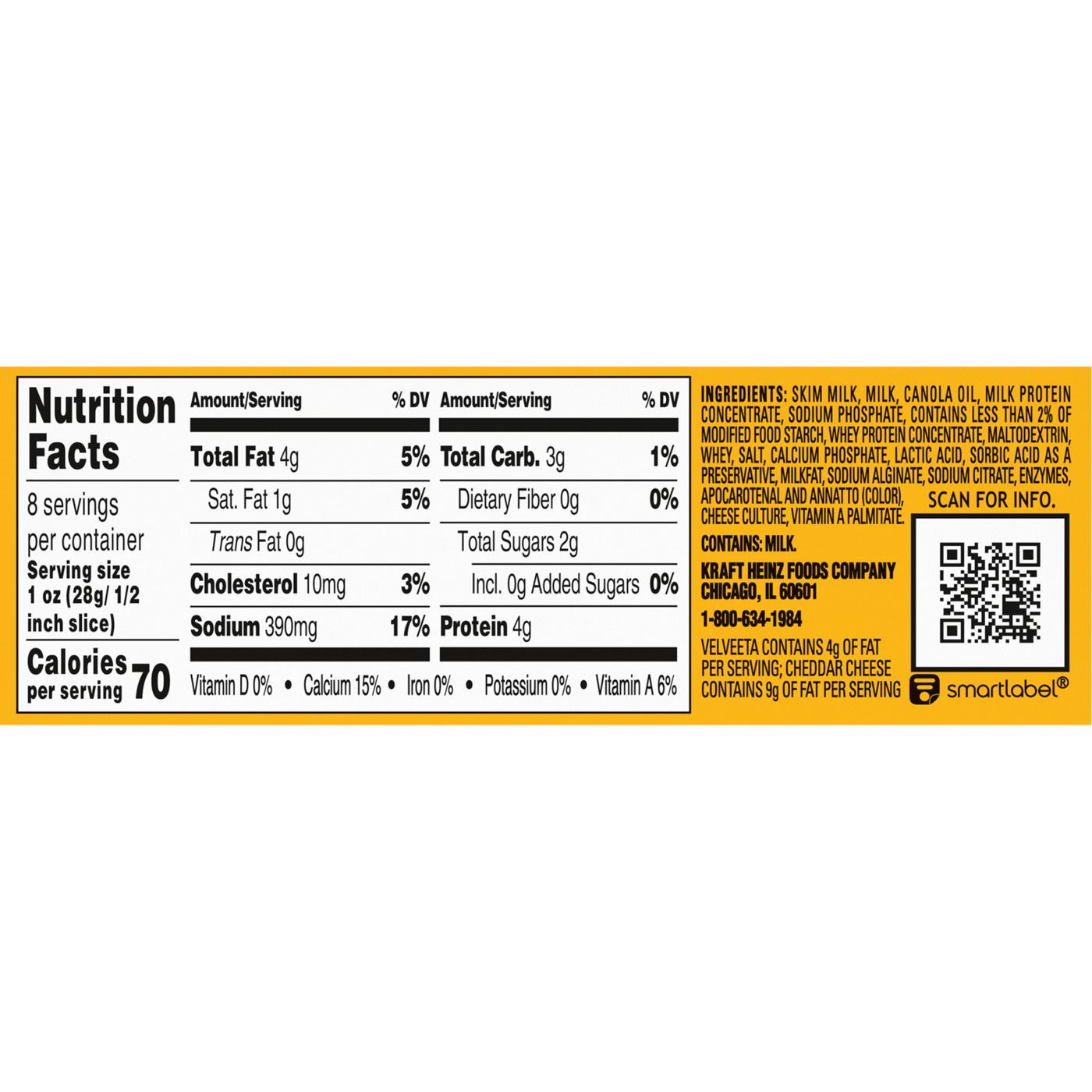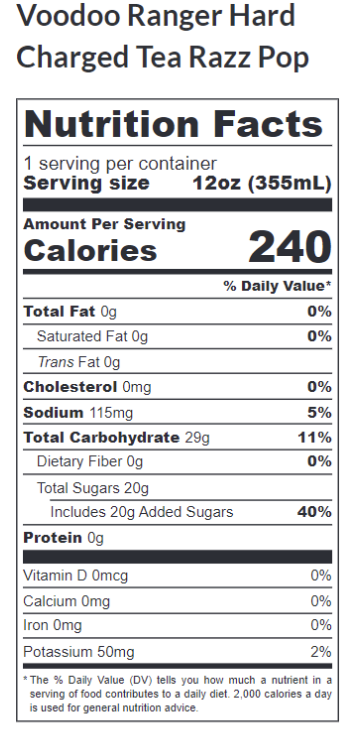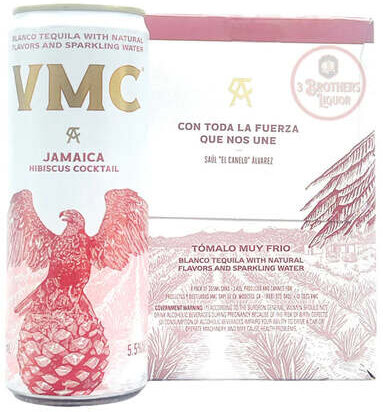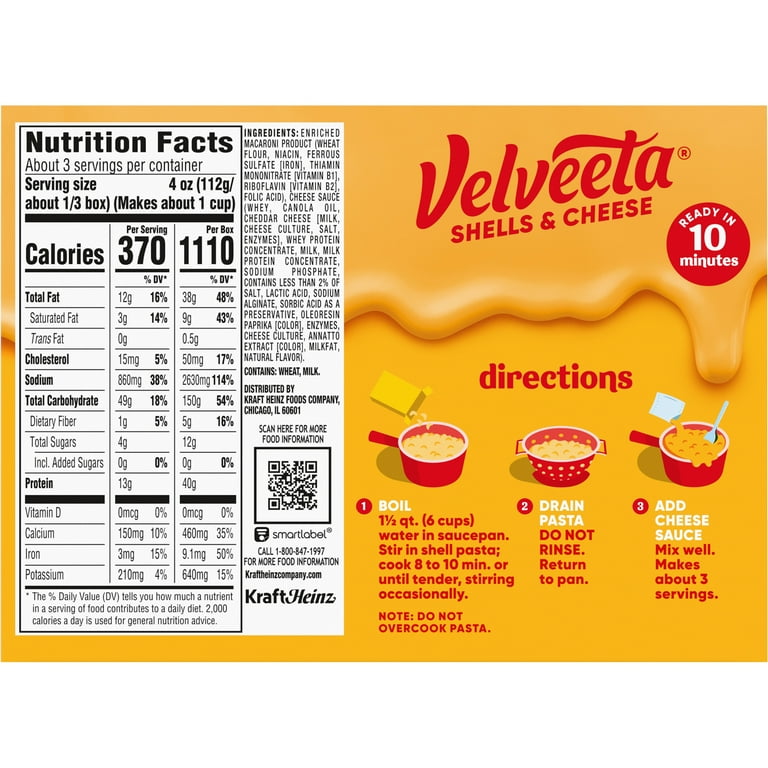
Velveeta Nutrition Label: Velveeta is a popular cheese product. Many people enjoy its creamy texture and taste.
But what about its nutritional value? Understanding the Velveeta nutrition label can help you make informed choices. This blog will break down the key details. We will look at calories, fat content, and more. Knowing these facts can guide your eating habits.
Whether you love Velveeta or are just curious, you’ll find this information useful. Let’s dive into the details and see what Velveeta offers nutritionally. Stay tuned for a clear and easy-to-understand analysis of the Velveeta nutrition label.
Nutritional Overview
Velveeta is a popular cheese product known for its creamy texture. It is often used in various recipes, including dips and casseroles. Understanding the nutritional content of Velveeta can help you make informed dietary choices.
Macronutrients Breakdown
Velveeta provides a balanced mix of macronutrients. Here’s a closer look:
| Macronutrient | Amount per Serving |
|---|---|
| Calories | 80 |
| Total Fat | 6g |
| Saturated Fat | 4g |
| Cholesterol | 20mg |
| Sodium | 410mg |
| Total Carbohydrates | 3g |
| Dietary Fiber | 0g |
| Sugar | 2g |
| Protein | 5g |
Micronutrients Content
While macronutrients are essential, micronutrients also play a crucial role in your diet. Here is the micronutrient content of Velveeta:
- Calcium: 15% of the daily value
- Vitamin A: 10% of the daily value
- Iron: 0% of the daily value
- Vitamin C: 0% of the daily value
Velveeta is a good source of calcium and vitamin A. These nutrients support bone health and immune function. Note that it lacks iron and vitamin C.
Understanding these details helps you plan balanced meals. Velveeta can be part of a nutritious diet when consumed in moderation.

Credit: www.walmart.com
Caloric Content
When considering a product like Velveeta, understanding its caloric content is crucial. Many people enjoy Velveeta for its creamy texture and cheesy flavor. Knowing its caloric value can help you make informed dietary choices. Let’s dive into the details of Velveeta’s calories.
Calories Per Serving
Velveeta cheese provides a specific amount of calories per serving. According to the nutrition label, a standard serving size of Velveeta is 32 grams, which is about one slice or 1/4 cup. Here is a breakdown:
| Serving Size | Calories |
|---|---|
| 32 grams (1 slice or 1/4 cup) | 80 calories |
This means that each serving of Velveeta contributes 80 calories to your daily intake. It’s important to consider this when planning meals, especially if you consume multiple servings.
Comparing To Daily Intake
To understand the impact of Velveeta on your diet, compare its caloric content to the recommended daily caloric intake. The average daily intake for adults is around 2000 calories. Here’s how Velveeta fits into this:
- 1 serving (32 grams) of Velveeta: 80 calories
- Percentage of daily intake: 4% of 2000 calories
If you eat more than one serving, these numbers add up quickly. For example:
- 2 servings: 160 calories, 8% of daily intake
- 3 servings: 240 calories, 12% of daily intake
By tracking your servings, you can better manage your overall caloric intake. This helps maintain a balanced diet while enjoying your favorite foods.
Protein Content
Understanding the protein content of Velveeta can help you make better dietary choices. Proteins are essential for muscle growth and repair. Let’s take a closer look at how much protein Velveeta offers and the benefits of including protein in your diet.
Protein Per Serving
Velveeta provides a moderate amount of protein per serving. Here is the breakdown:
| Nutrient | Amount per Serving (28g) |
|---|---|
| Protein | 5 grams |
Each serving of Velveeta (about 1 ounce) offers 5 grams of protein. This makes it a decent source of protein for cheese lovers.
Benefits Of Protein
- Muscle Growth: Protein is crucial for building and repairing muscles.
- Sustained Energy: It helps maintain energy levels throughout the day.
- Satiety: Protein keeps you feeling full longer, reducing the urge to snack.
- Immune Support: It plays a key role in a healthy immune system.
Incorporating protein-rich foods like Velveeta can support your overall health. It’s important to balance your diet with other nutrient-rich foods. This ensures you get a well-rounded intake of essential nutrients.

Credit: www.cub.com
Carbohydrate Analysis
Understanding the nutritional content of Velveeta can help you make informed dietary choices. Let’s dive into the carbohydrate analysis of Velveeta. We’ll explore the total carbs, sugars, and fiber content.
Total Carbs
Velveeta contains a moderate amount of carbohydrates. Per serving, you can expect:
- Total Carbs: 7 grams
These carbs come from the ingredients used to create the creamy texture and flavor of Velveeta. It’s important to be aware of these values if you are watching your carbohydrate intake.
Sugars And Fiber
Understanding the sugar and fiber content in Velveeta is crucial. Here’s a closer look:
- Sugars: 2 grams per serving
- Fiber: 0 grams per serving
The sugar content in Velveeta is relatively low, making it a suitable option for those monitoring their sugar intake. However, it does not contribute any dietary fiber, which is important for digestive health.
By analyzing the carbohydrate content of Velveeta, you can better manage your diet and nutritional needs.
Fat Composition
Understanding the fat composition of Velveeta is crucial for health-conscious individuals. The Velveeta nutrition label provides detailed information about the various types of fats present in this popular cheese product. This knowledge can help you make informed dietary choices and understand how Velveeta fits into your overall nutritional plan.
Types Of Fat
Velveeta contains different types of fats, each playing a unique role in your diet. It’s important to distinguish between these fats to understand their health implications.
- Monounsaturated Fats: These fats are considered healthy and can help reduce bad cholesterol levels.
- Polyunsaturated Fats: These include omega-3 and omega-6 fatty acids, essential for brain function and cell growth.
- Saturated Fats: These fats can raise cholesterol levels and are often considered less healthy.
- Trans Fats: These are artificially created and can increase the risk of heart disease.
Saturated Vs Unsaturated Fats
To understand the impact of Velveeta on your health, it’s essential to know the difference between saturated and unsaturated fats.
Saturated fats are typically found in animal products and certain processed foods. They can raise the level of cholesterol in your blood, increasing the risk of heart disease and stroke. Velveeta contains a significant amount of saturated fats, which are important to monitor if you are on a heart-healthy diet.
Unsaturated fats, on the other hand, are found in plants and fish. They are known to improve blood cholesterol levels, ease inflammation, and stabilize heart rhythms. Velveeta also contains some unsaturated fats, which contribute to its creamy texture and taste.
Here is a simple comparison in a tabular format:
| Type of Fat | Sources | Health Impact |
|---|---|---|
| Saturated Fats | Animal products, processed foods | Can raise cholesterol levels, risk of heart disease |
| Unsaturated Fats | Plants, fish | Improve cholesterol levels, reduce inflammation |
Balancing these fats in your diet is key to maintaining good health. Always check the nutrition label to make healthier choices.

Credit: www.heb.com
Sodium Levels
Understanding the sodium levels in Velveeta Cheese is essential for health-conscious individuals. Sodium is a crucial mineral, but too much can be harmful. Let’s explore the sodium content in Velveeta Cheese and its health implications.
Sodium Per Serving
Velveeta Cheese contains a significant amount of sodium. Here is the sodium content per serving:
| Serving Size | Sodium (mg) |
|---|---|
| 1 oz (28g) | 410 mg |
| 2 oz (56g) | 820 mg |
| 3 oz (84g) | 1230 mg |
As shown, even a small serving of Velveeta Cheese contains a high amount of sodium. This is important for those monitoring their sodium intake.
Health Implications
High sodium levels can lead to various health issues. Some of the health implications include:
- High Blood Pressure: Excess sodium can raise blood pressure.
- Heart Disease: High sodium intake is linked to heart disease.
- Kidney Damage: Too much sodium can harm your kidneys.
It is essential to be aware of these implications. Reducing sodium intake can help maintain better health.
Consider alternative options with lower sodium levels. This can help you make healthier choices.
Ingredient List
Understanding the ingredient list on the Velveeta nutrition label helps you make informed choices. Velveeta, a popular cheese product, contains several ingredients. Let’s break down the key ingredients and additives.
Key Ingredients
Velveeta consists of a few primary ingredients. These ingredients provide the taste and texture we love.
- Milk: The base ingredient. It gives Velveeta its creamy texture.
- Water: Keeps the cheese moist and spreadable.
- Whey Protein Concentrate: Adds protein content and helps with texture.
- Milk Protein Concentrate: Enhances the protein level and texture.
- Canola Oil: Adds smoothness and a slight richness to the cheese.
- Sodium Phosphate: Aids in creating the smooth, meltable texture.
Additives And Preservatives
Velveeta also includes additives and preservatives. These ingredients ensure quality and shelf stability.
| Ingredient | Purpose |
|---|---|
| Sodium Alginate | Thickening agent. It ensures the cheese stays firm. |
| Sorbic Acid | Preservative. It prevents mold growth. |
| Apocarotenal | Coloring agent. It gives Velveeta its signature yellow hue. |
| Enzymes | Helps in the cheese-making process. |
| Cheese Culture | Contains beneficial bacteria for cheese development. |
These ingredients and additives ensure Velveeta’s unique texture and flavor. They also help maintain its quality over time.
Health Considerations
Velveeta is a popular choice for many cheese lovers. But understanding its nutrition is crucial for health-conscious individuals. Let’s explore the health considerations related to Velveeta.
Dietary Restrictions
If you have dietary restrictions, knowing the ingredients is vital. Velveeta contains milk, making it unsuitable for those with lactose intolerance or dairy allergies. Additionally, Velveeta includes artificial ingredients and preservatives, which might not fit into a clean eating lifestyle.
| Nutrient | Amount per Serving |
|---|---|
| Calories | 80 |
| Fat | 6g |
| Protein | 5g |
| Sodium | 410mg |
Velveeta is also high in sodium, which is a concern for those on low-sodium diets. The high fat content might not be suitable for people watching their fat intake.
Impact On Health
Velveeta’s high sodium level can increase blood pressure. This is a risk factor for heart disease. Consuming high amounts of processed cheese like Velveeta might contribute to weight gain due to its calorie content.
Velveeta is also low in essential nutrients like vitamins and minerals. Relying on it as a primary cheese source might lead to nutrient deficiencies.
Despite these concerns, Velveeta can still be enjoyed in moderation. Balance it with healthier choices to maintain a nutritious diet.
- Opt for smaller portions.
- Pair it with vegetables.
- Use it occasionally in recipes.
Frequently Asked Questions
What Is The Calorie Count In Velveeta?
Velveeta contains about 80 calories per 1 oz (28g) serving. This makes it a moderate-calorie cheese option.
Is Velveeta High In Sodium?
Yes, Velveeta is high in sodium. A 1 oz (28g) serving contains approximately 410 mg of sodium.
How Much Protein Is In Velveeta?
Velveeta provides around 5 grams of protein per 1 oz (28g) serving. It’s a good source of protein.
Does Velveeta Contain Any Trans Fats?
No, Velveeta does not contain trans fats. It has 6 grams of total fat per serving.
Conclusion
Understanding the Velveeta nutrition label helps you make informed choices. Each serving provides specific nutrients that fit into your diet. Always check the label for serving size and ingredients. This ensures you consume what’s best for your health. Remember, moderation is key in any diet.
Enjoy Velveeta wisely and maintain a balanced lifestyle. Your health journey is unique, and every little step counts. Keep educating yourself and stay mindful of your choices.




